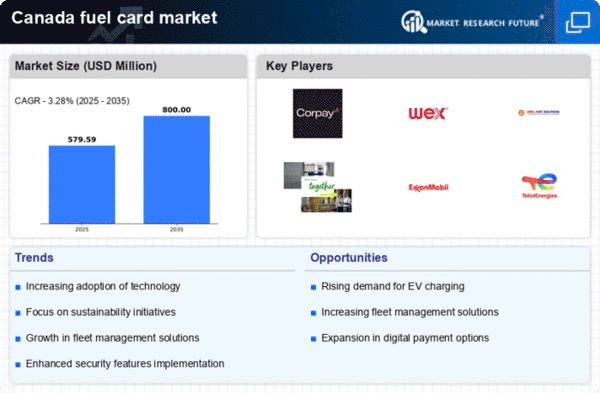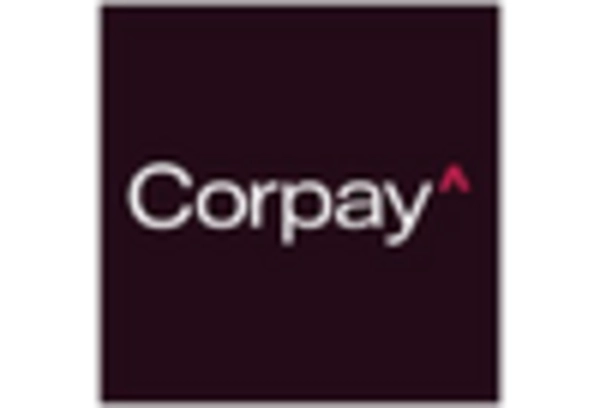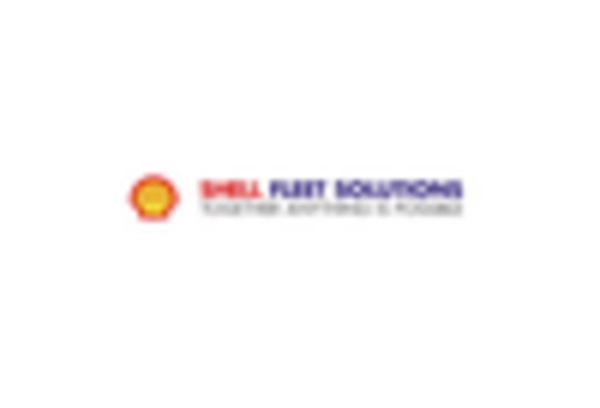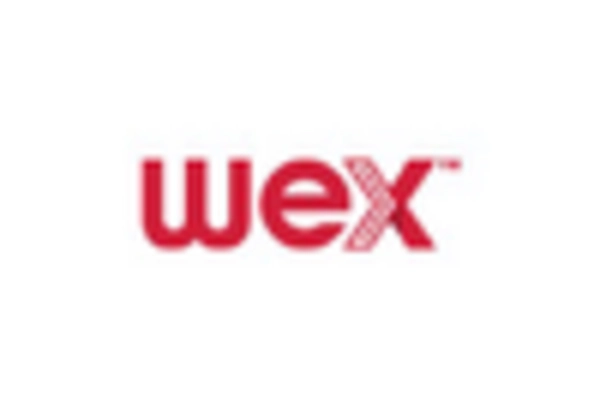Rising Fuel Prices
The fuel card market in Canada is experiencing a notable impact from the rising fuel prices. As fuel costs continue to escalate, businesses are increasingly seeking efficient ways to manage their fuel expenditures. Fuel cards provide a streamlined solution, allowing companies to monitor fuel consumption and expenses effectively. In 2025, the average price of gasoline in Canada is projected to reach approximately $1.60 per liter, which represents a significant increase compared to previous years. This trend is likely to drive demand for fuel cards, as organizations aim to optimize their fuel budgets and reduce operational costs. The fuel card market is thus positioned to benefit from this economic pressure, as more businesses recognize the value of implementing fuel management solutions.
Government Regulations
Government regulations in Canada are playing a crucial role in shaping the fuel card market. With increasing emphasis on environmental sustainability and emissions reduction, regulatory bodies are implementing stricter guidelines for fuel consumption and vehicle emissions. As a result, businesses are compelled to adopt fuel management solutions that comply with these regulations. The fuel card market is likely to see growth as companies seek to align their operations with government mandates. In 2025, it is anticipated that compliance with environmental regulations will drive a 25% increase in the adoption of fuel cards among businesses, as they strive to meet both legal requirements and corporate sustainability goals.
Enhanced Fleet Management
The fuel card market is being propelled by the growing need for enhanced fleet management solutions among Canadian businesses. Companies are increasingly recognizing the importance of tracking fuel usage and vehicle performance to improve operational efficiency. Fuel cards offer comprehensive reporting features that enable fleet managers to analyze fuel consumption patterns and identify potential areas for cost savings. In 2025, it is estimated that over 60% of Canadian businesses with fleets will adopt fuel card systems to streamline their operations. This shift indicates a strong trend towards data-driven decision-making in the fuel card market, as organizations seek to leverage technology for better fleet oversight.
Increased Focus on Cost Control
In the current economic climate, Canadian businesses are placing a heightened focus on cost control, which is significantly influencing the fuel card market. Organizations are actively seeking ways to reduce operational expenses, and fuel management solutions are becoming a vital component of their strategies. Fuel cards enable businesses to monitor fuel spending, identify inefficiencies, and implement cost-saving measures. In 2025, it is expected that the demand for fuel cards will increase by 30% as companies prioritize financial prudence. The fuel card market is thus positioned to thrive as businesses recognize the importance of effective fuel management in achieving their cost control objectives.
Shift Towards Digital Payment Solutions
The fuel card market in Canada is witnessing a significant shift towards digital payment solutions. As businesses increasingly embrace technology, the demand for contactless and digital payment methods is on the rise. Fuel cards are evolving to incorporate advanced payment technologies, allowing for seamless transactions at fuel stations. This trend is particularly relevant in 2025, as it is projected that over 70% of fuel purchases will be made using digital payment methods. The fuel card market is thus adapting to this change, offering innovative solutions that cater to the preferences of modern consumers and businesses alike.















